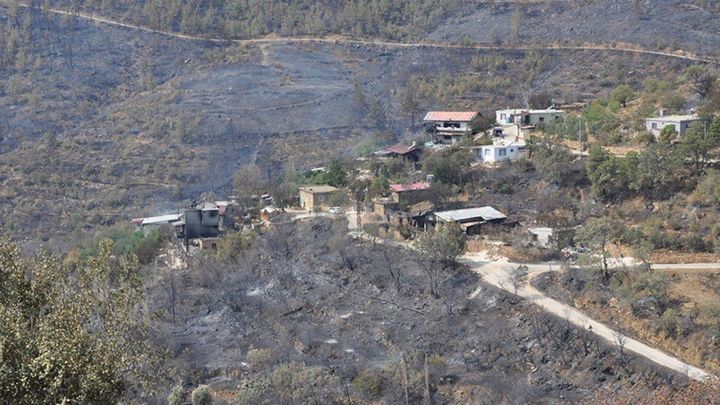Donation protected
I am a co-founder of the Halbuki Linguist cooperative, we are dedicated not only to preserving and promoting less commonly taught languages but also to honoring the communities, cultures, and histories behind them.
Our cooperative member and Turkish language instructor Zeynel is part of the Tahtacı people, a lesser-known minority group in Turkey with deep ties to the land and forests of Anatolia. We would like to shine a spotlight on this resilient community to honor our Zeynel and his roots in light of the recent fires starting on August 13th in the Silifke district of Mersin where the Tahtacı live.
The Tahtacı, whose name comes from the Turkish word tahta (wood), have historically been known as skilled woodworkers and forest people. Their livelihoods traditionally revolved around woodworking, forestry, and related crafts. For centuries, they maintained a semi-nomadic way of life, moving between regions of Anatolia—especially along the Taurus Mountains, the Aegean coast, and southern Turkey. Today, their communities are found primarily in the provinces of Mersin, Antalya, İzmir, and Balıkesir. Zeynel is from the Kırtıl village in the Silifke district of Mersin province.
Like many Alevi groups in Anatolia, the Tahtacı follow a distinct form of Sunni practice, but their traditions have unique features shaped by their close relationship to nature and their historical isolation in forested regions. Their rituals emphasize community solidarity, respect for elders, and reverence for nature as sacred. Ceremonies are often held in houses, with music, song, and poetry playing central roles in spiritual expression. The Tahtacı maintain strong oral traditions, passing down folktales or folk stories, ‘mengi’ (a type of dance/song unique to Tahtacıs similar to ‘semah’ but more exuberant, focusing on everyday life and love rather than religious stories), prayers, hymns called ‘nefes’ - (literally meaning 'breath'), and teachings that blend Turkic shamanistic elements with Shiite and Sufi influences. Their secluded lifestyle not only protected them from persecution but also allowed their distinctive Alevi practices to develop in ways that remain vibrant markers of identity today.
The Tahtacı identity was shaped by persecution. Following the Battle of Chaldiran in 1514, the Ottoman Empire under Selim I began targeting Alevis, whom the state regarded with suspicion due to their unique Alevi (Shiite) faith and connections to the rival Safavid Empire. As a result, the Tahtacı withdrew even further into remote mountain and forest regions, where they could preserve their beliefs and way of life away from persecution. This history of marginalization and resilience explains why Tahtacı communities developed such a strong sense of cultural uniqueness and why they remain small, tight-knit, and protective of their traditions to this day.
Today, the exact numbers of Tahtacı populations are hard to determine, since Tahtacı identity is often folded into larger Alevi or Turkish census categories. Estimates suggest that there are tens of thousands of Tahtacı people across Turkey, but their communities are small, tight-knit, and often vulnerable to cultural loss. Many younger generations have moved away from villages to urban centers, which makes the preservation of their traditions even more crucial.
We are fortunate to have Zeynel, one of our Turkish instructors, as part of our teaching community. Zeynel is himself Tahtacı, and through his teaching he shares not only the Turkish language but also insights into the history and traditions of his people.
Tragically, Zeynel’s home village in the Mersin region, where his family lived for generations, was completely destroyed in the recent wildfires that swept across southern Turkey. His family’s house, along with much of the community, was reduced to ash. For the Tahtacı, who have lived so closely connected to the forests for centuries, these fires are not only a material loss but also a spiritual wound, striking at the heart of their cultural identity.
As a cooperative, we believe in supporting our community members when they face hardship. We are organizing a fundraiser to help Zeynel and his community rebuild after this devastating loss. By contributing, you are not only helping a beloved teacher and his loved ones recover, but also helping to preserve the heritage of a minority community that has long lived on the margins yet enriched Turkey’s cultural landscape in countless ways.
If you’d like to donate to support his people in rebuilding their ancestral home, please contribute to this fund.
Organizer
Elena Moroz
Organizer
Saratoga, CA
